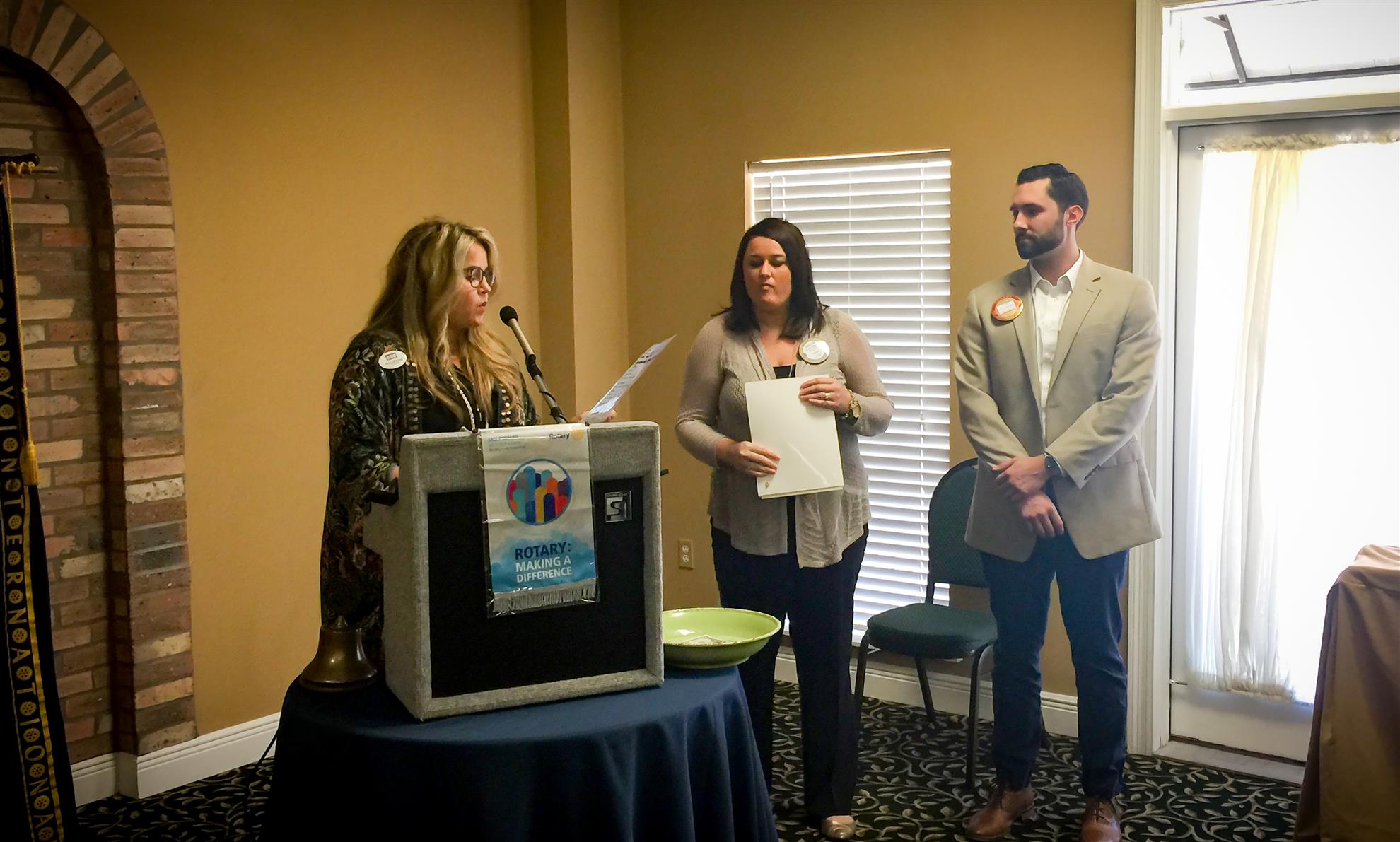
Last Tuesday we welcomed our newest member, Colby Sappington!
Click the "Read More" button to view your Minutes from last Tuesday's meeting.
President Paula Brahan presided over the meeting. Thanks to Mike Ratliff who gave the invocation and to Wes Brooks who led us in the Pledge of Allegiance.
Thanks to Wes Brooks and Mike Ratliff for serving as our greeters today.
Mike Ratliff introduced today’s guest. Michael McPhail is a guest of Aaron Ladner.
Mike announced we still need volunteers for the invocation, pledge of allegiance and greeters. You can now register to volunteer on the website.
Paula announced all of the club’s committees and passed out the list to the committee chairs. Today’s card drawing winner is Johnny Stephens.
Colby Sappington, sponsored by Jaclyn Adams was inducted into the club as our newest member. Colby moved to Hattiesburg 3 months ago from Olive Branch, MS. He attended MS State University where he studied Bio Chemistry. He now works for BancorpSouth Insurance Service as a Commercial Lines Producer. Colby is a newlywed, being married for just three weeks. His wife works at USM in the admissions department.
Paula then introduced todays speaker Dr. Amber Chancelor.
Amber explained what an Advance Healthcare Directive is. AHD, also known as a living will, personal directive, advance directive, medical directive or advance decision, is a legal document in which a person specifies what actions should be taken for their health if they are no longer able to make decisions for themselves because of illness or incapacity.
Only 27% of people actually talk to their families about advance healthcare directive and 60% of people say that making sure their family is not burdened by those tough decisions is extremely important. However, few have made their wishes known.
It is important you think about the person you are leaving this responsibly to. Will they be able to honor your wishes? Will they be strong enough? Sixty-six percent of family disputes about end-of-life issues that end up in court could have been avoided if family members had clearly discussed and documented their wishes in advance.
Advance directives were created to help with the painful, expensive, and emotionally burdensome decisions that both patients and their families have to make. The first formal response to these issues was the living will. A living will is one form of advance directive, leaving instructions for treatment.
Second generation advance directives are known as the Power of Attorney. The primary benefit of second-generation advance directives is that the appointed representative can make real-time decisions in actual circumstances. Eventually, deficiencies in "second-generation" advance directives were also soon noted. Primarily, individuals faced problems similar to those that handicapped living wills – knowing what to tell the proxy decision-maker about one's wishes in a meaningful way. This continuing problem led to the development of what might be called "third generation" advance directives.
Third generation advance directives were designed to assist individuals and their appointed agents, families, and physicians to better understand and honor their wishes. The goal of this advance directive is to move away from a focus on specific treatments and medical procedures to a focus on patient values and personal goals.
In the United States, all states recognize some form of living wills or the designation of a health care proxy. If you would like a copy of the Mississippi Advance Directive Form, please visit https://www.everplans.com/articles/mississippi-advance-directive-form.
If you would like to speak with Amber more about the Advance Healthcare Directive, you can email her at achancelor@forrestgeneral.com or call her at 601.288.4307.
Paula thanked our speaker today and with no other business or announcements she adjourned the meeting with our motto, “Service Above Self."